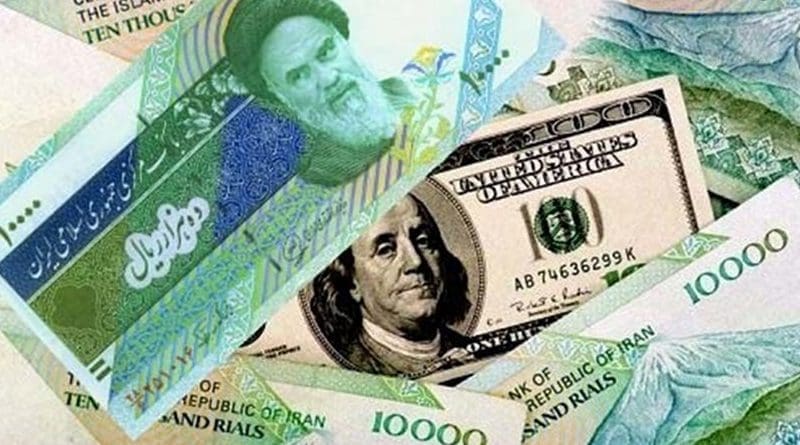Iran’s Currency Plunges To New Low
By Arab News
By Sean Cronin and Ben Flanagan
The Iranian rial plunged to a historic low on Monday despite Tehran’s attempts to restore calm before the reimposition of international sanctions next week.
The year-long slide of the currency has accelerated in recent days as Iranians turn to the black market to buy hard currency while the authorities arrested traders accused of profiteering.
The dollar was trading at about 112,000 rials on the black market compared to about 90,000 last week as Iranians braced for tough times ahead.
It follows a decision by US President Donald Trump in May to pull out of the international nuclear deal with Iran and reintroduce sanctions.
“A shift to a convertible currency is a natural reaction when people lose faith in the local currency and want to shift quickly to something they will know will hold value as is the case now,” Oxford Economics senior economist Maya Senussi told Arab News.
“On the ground, sentiment is deteriorating as hopes that US sanctions can be circumvented are fading and that is reinforcing the flight to dollars in the ‘beat the clock’ fashion.”
Jean Francois Seznec, a political scientist in Washington specializing in Middle East business, said the new sanctions being imposed on Tehran will hit the economy hard.
“The sanctions — which haven’t really started yet — will bite a lot more than the Iranians are hoping,” he said.
“That will influence the value of the rial. It’s going to be a major economic disaster. By and large, it will be drastic for Iran. I think the markets really feel that.”
There will be a “major” further decline in the value of the rial against the US dollar later this year, Seznec forecast.
“Everyday Iranians are going to be more and more miserable,” he said.
Seznec outlined the policy steps the Iranian regime would need to take to avert such an economic crisis — although he said they were unlikely to do so.
“They would have to compromise on the whole nuclear issue, and agree not to support the Houthis and Hezbollah … which I don’t think the current leadership is willing to do.”
Iran last week appointed a new central bank governor to replace Valiollah Seif, who had attracted criticism for the steep decline in the currency.
President Hassan Rouhani has pledged to prosecute corruption within state and private sector institutions amid growing public anger.
The rapid weakening of the currency is expected to stoke inflationary pressures as the cost of imports surges.
“The authorities have remained in denial, the unification of the official rate with the parallel rate in April was insufficient as the new official rate was not where the market saw it even though it was the largest official depreciation of the currency since the step devaluation in 2013,” said Senussi.
“The collapse is very significant and the direct effect will be faster than inflation (it averaged 40 percent in 2013), though I would imagine official data will probably continue to understate actual price pressures.”

